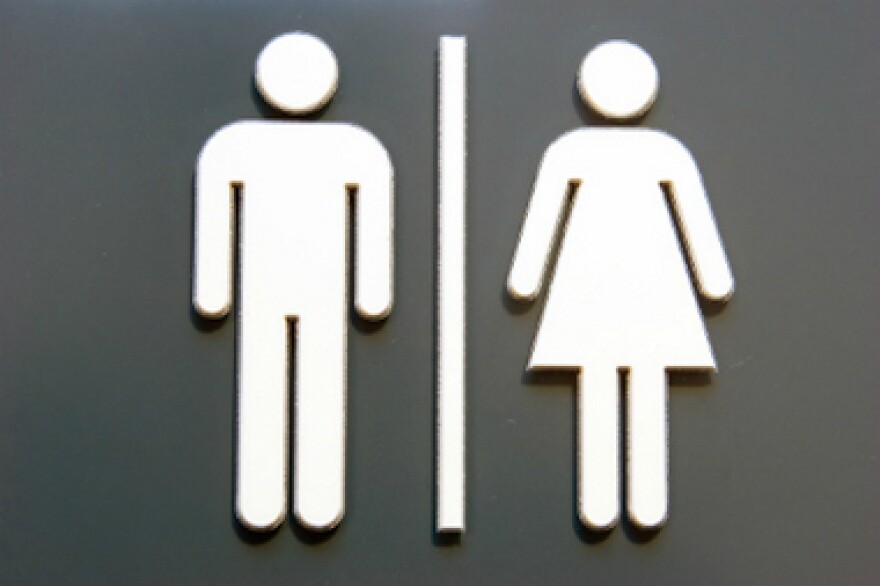The Affordable Care Act is in effect across the country, but some Utahns are finding that they still don’t have any options for health insurance. As part of an ongoing series, KUER looks at those find themselves in this coverage gap. In today’s installment, we meet a 32-year-old who is in the process of coming out as transgender.
Logan has felt like a male his whole life, but has been too scared until this point to do anything about it. He doesn’t want to use his last name for this story because he has not told some members of his family, and he’s worried that it might affect his employment. But he says he’s tired of hiding it. He’s started taking hormones, and wants to transition to being a man. For Logan, it’s a matter of choosing life over death.
“I couldn’t try and be something that I wasn’t any more, and I knew I had to go down this path,” Logan says. “There are many days that I don’t know if I have the strength to go through this, but it’s either I find it, or I just become another statistic.”
Logan says he never saw any need for health insurance before, but now it’s a priority. He went to the Utah Pride Center to speak to a patient navigator who could help him sign up through the federal website. He had heard that being transgendered was often a barrier to finding insurance. Many companies consider it a pre-existing condition. But the Affordable Care Act has offered hope to those who are transgendered because it requires insurance companies to offer coverage regardless. For Logan, those hopes were quickly dashed.
"I thought this was supposed to be a fix for those people that didn't have health insurance."
“Because I was unemployed, I didn’t fit the criteria, so I didn’t qualify,” Logan says. “I thought this was supposed to a fix for those people that didn’t have health insurance, or couldn't get health insurance. What’s left? Just sorry, don’t know what to tell ya’?”
Patient navigator Deann Armes says Logan’s experience is turning out to be the norm for those she’s been trying to help.
“I was very hopeful in the beginning and anxious to promote the LGBTQ friendly affordable health care,” Armes says. “Immediately, I started to notice a trend and realized quickly after the first few clients who came in to see me, that they were falling into this Medicaid gap.”
The so-called gap is a phenomenon occurring in states like Utah that have not expanded the Medicaid program to cover low-income adults. The US Supreme Court ruled in 2012 that the federal government could not force states to expand the program, and Utah’s lawmakers have not yet made a decision on this. In the meantime, people under 100 percent of the poverty level – as Logan is – do not qualify for Medicaid, but they also do not qualify for federal tax subsidies. State officials estimate this affects about 60,000 Utahns. Armes says almost all of the clients she serves at the Pride Center are falling in this coverage gap.
“There is a very high occurrence of individuals in the LGBT community who are unemployed and low income, so the affordable care act is not helping them as I thought it would,” Armes says.
Transgender people in particular are four times more likely than the general population to earn less than 10,000 dollars a year and have double the rate of unemployment. That’s according to the National Transgender Discrimination Survey. Armes says she wanted to be a patient navigator to help people like Logan, but mostly she’s been delivering bad news.
“It was hard to be the bearer of that news that there was nothing I could do help get them covered, and to see faces of hope turn into disappointment and fear and worry,” Armes says.
Dane Law has already made the transition to be male. He has health insurance through his job, but says there are still exclusions in his coverage plan that do not cover transgender health procedures like hormone therapy. Law says he had a lot of hope that the Affordable Care Act would help transgender people, but he’s been disappointed so far.
“The more stories I’m hearing now about local trans people here in Utah, and other states that don’t have Medicaid expansion, I feel a little disillusioned, to be quite honest. I think that what started out to be maybe a positive thing has because of party politics, I think it’s really not going to help the people it was intended to help, but I am hopeful that maybe we can see in the next year or so some movement in the right direction,” Law says.
As for Logan, he’s hoping to secure health insurance through a job, but he says that too is fraught with uncertainty.
“When do you tell your employer you’re going through this? Do you tell them, at some point in time, I’m going to be making not only a name change, but a gender change? Especially in states that have the right-to-work state law, it’s no holds barred; they can make up whatever and say we no longer need you,” Logan says.
The National Transgender Discrimination Survey found that over one-quarter of respondents had lost a job due to being transgender or gender non-conforming. Half reported harassment in the workplace. State Republican leaders have said they will not consider a bill this year that would outlaw workplace and housing discrimination against LGBT people. As for the decision on whether to expand Medicaid to cover someone like Logan, the governor and state lawmakers say they may have a decision by the end of the session.






